Wellness Wednesday: How Antioxidants Work and Why They Matter
I’ve spent years helping people make sense of nutrition headlines, and if there’s one topic that always sparks questions, it’s antioxidants. Clients will often ask me if they should be “loading up” on supplements, if blueberries really are a “superfood,” or if coffee counts as a health drink. As a registered dietitian who has reviewed the research and worked with hundreds of individuals trying to improve their diets, I’ve seen both the promise and the confusion surrounding antioxidants. The truth is less glamorous than the marketing—but far more empowering when you understand how these compounds actually work in the body and where they fit into a healthy lifestyle.
What Are Antioxidants?
Antioxidants are molecules capable of donating an electron to neutralize free radicals—reactive oxygen species (ROS) and reactive nitrogen species (RNS)—without becoming unstable themselves. This process prevents oxidative stress, a state where free radicals overwhelm the body’s defenses, damaging DNA, proteins, and cell membranes.
But antioxidants do more than mop up free radicals. Many act as regulators of cell signaling and gene expression, influencing processes such as:
Activation of Nrf2, a transcription factor that triggers the body’s own antioxidant defense system.
Modulation of NF-κB, a pathway central to inflammation.
Support of mitochondrial function, improving energy production and reducing cellular aging.
This means antioxidants don’t just defend against damage—they help orchestrate the body’s repair, resilience, and adaptation.
Oxidative Stress: Friend and Foe
It’s tempting to think of free radicals as purely harmful, but that oversimplifies the science. In fact, controlled oxidative stress is essential for health. Free radicals play critical roles in immune defense, muscle adaptation during exercise, and cellular communication.
Problems arise when production outpaces control, leading to chronic oxidative stress. This imbalance has been linked to conditions such as cardiovascular disease, type 2 diabetes, neurodegenerative disorders, and accelerated aging.
In other words, antioxidants help maintain balance—not eliminate free radicals altogether.
Where Do Antioxidants Come From?
Antioxidants are found both inside the body and in the foods we eat.
Endogenous antioxidants: Enzymes like superoxide dismutase, catalase, and glutathione peroxidase are produced internally and form the first line of defense.
Dietary antioxidants: Obtained from food, these include vitamins (C, E), minerals (selenium, zinc), carotenoids (β-carotene, lycopene), flavonoids (quercetin, catechins), and polyphenols (resveratrol, curcumin).
Whole foods rich in antioxidants include:
Fruits and vegetables (berries, leafy greens, tomatoes).
Nuts and seeds (almonds, sunflower seeds).
Legumes and whole grains.
Beverages like tea, coffee, and red wine (in moderation).
What the Evidence Says
Human Clinical Data
Epidemiological research consistently links higher fruit and vegetable intake with reduced risk of chronic diseases and longer life expectancy. For example:
The EPIC study (over 500,000 participants) found that higher fruit and vegetable intake was associated with reduced all-cause mortality.
Randomized controlled trials show that vitamin C supplementation can modestly reduce the duration of the common cold, particularly in individuals under high physical stress.
However, large-scale trials on isolated antioxidant supplements have been disappointing: the ATBC trial (β-carotene in male smokers) actually found increased lung cancer risk with supplementation.
The Supplementation Paradox
Why do whole foods consistently protect health while isolated supplements often fall short—or even cause harm? The answer lies in synergy. In foods, antioxidants are packaged with fiber, phytochemicals, and nutrients that work together. This synergy is lost when compounds are isolated into pill form.
Risks and Limitations of Supplements
While antioxidant supplements are widely available, they are not without risk:
β-carotene: Supplementation increased lung cancer risk in smokers.
Vitamin E: High doses have been linked to increased hemorrhagic stroke and interactions with anticoagulants.
General supplementation: Meta-analyses suggest no consistent mortality benefit, and in some cases, increased mortality with high-dose supplementation.
The takeaway: most people benefit more from antioxidant-rich dietary patterns than from pills, unless a deficiency is clinically diagnosed.
Population Specific Considerations
Athletes: While antioxidants support recovery, excessive supplementation may blunt training adaptations by interfering with exercise-induced oxidative stress, which is part of how the body gets stronger.
Older adults: Antioxidants may play a role in reducing cognitive decline, though results are mixed. Diet-based interventions appear more promising than supplements.
Chronic disease populations: People with cardiovascular disease or diabetes may benefit from higher dietary antioxidant intake, but supplementation trials remain inconclusive.
Pregnant and lactating women: Food-based antioxidants are generally safe and beneficial, but high-dose supplements should be avoided unless prescribed.
Practical Application: How Much Do We Need?
There is no single recommended “antioxidant target,” but we can use nutrient-specific guidelines:
Vitamin C: RDA is 75 mg/day for women, 90 mg/day for men (one cup of strawberries exceeds this).
Vitamin E: RDA is 15 mg/day (about 2 tablespoons of sunflower seeds).
Selenium: RDA is 55 mcg/day (one Brazil nut provides more than this).
A practical dietary strategy:
Fill half your plate with fruits and vegetables at each meal.
Choose a variety of colors—different pigments signal different antioxidants.
Include nuts, seeds, legumes, and whole grains regularly.
Enjoy tea or coffee daily, both rich in polyphenols.
Emerging Research
Antioxidant science is evolving, with new insights on:
Gut microbiome interactions: Polyphenols are metabolized by gut bacteria into bioactive compounds, enhancing their effects.
Precision nutrition: Genetic differences may affect how individuals absorb and utilize antioxidants, opening the door to personalized dietary recommendations.
Hormesis: Low levels of oxidative stress may actually strengthen resilience, suggesting that antioxidant intake needs balance—not excess.
The Short Version
Antioxidants play a critical role in maintaining health by balancing oxidative stress, supporting immune function, and protecting against chronic disease. Yet the evidence is clear: the most reliable benefits come not from supplements but from dietary patterns rich in plant-based foods.
The practical prescription is simple but powerful: eat a wide variety of colorful fruits and vegetables, pair them with nuts, seeds, legumes, and whole grains, and enjoy antioxidant-rich beverages like tea and coffee. Together, these habits provide a comprehensive defense system—one that supports both immediate resilience and long-term health.

